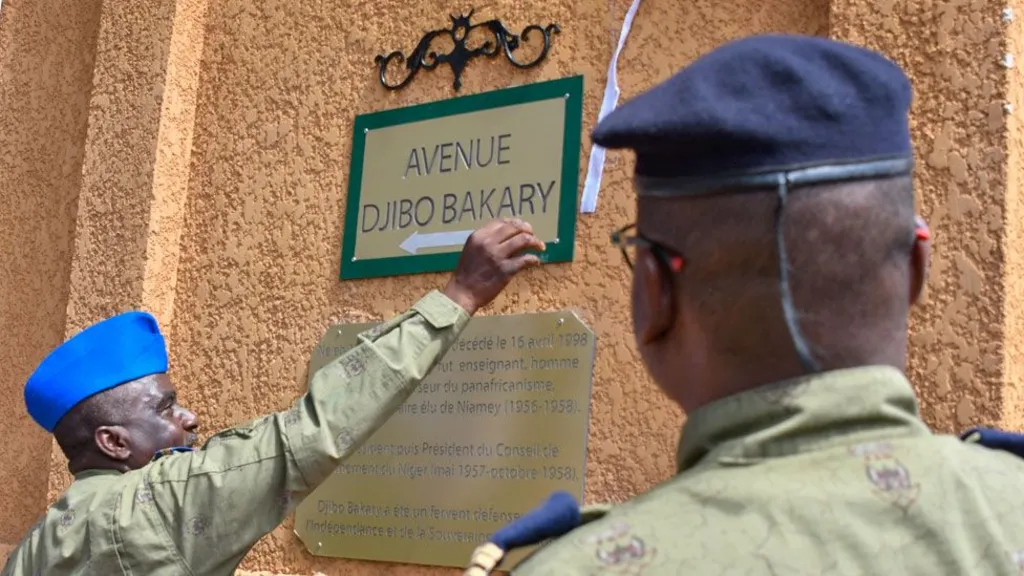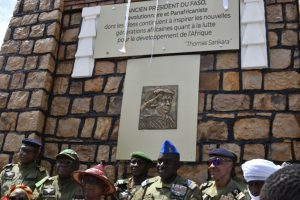Niger Embraces Local Heritage by Renaming French Streets and Monuments
3 min read

Niger’s military government has taken a significant step in redefining its national identity by renaming streets and monuments that previously honored French figures. This move aims to sever ties with the country’s colonial past and celebrate local heroes instead.
One prominent change is the renaming of Avenue Charles de Gaulle in the capital city, Niamey, to Avenue Djibo Bakary. This change pays tribute to Djibo Bakary, a pivotal figure in Niger’s quest for independence. The junta spokesman, Major Colonel Abdramane Amadou, expressed the sentiment behind these changes, stating, “Most of our avenues, boulevards, and streets… bear names that are simply reminders of the suffering and bullying our people endured during the ordeal of colonization.”
The decision to rename these public spaces comes amid a strained relationship between Niger and France, exacerbated by the coup that ousted President Mohamed Bazoum last year. As the military leadership aligns itself more closely with Russia for military assistance, Niger joins its neighbors, Mali and Burkina Faso, in forming the Alliance of Sahel States. This coalition aims to bolster regional security against the rising threat of jihadist groups.
Under Bazoum’s administration, France maintained a military presence of over 1,500 troops in Niger to combat extremist factions linked to al-Qaeda and the Islamic State. However, that military contingent withdrew entirely by the end of last year. The recent renaming ceremony in Niamey commemorated not only the street changes but also a war memorial that now honors all civilian and military victims of colonization, rather than just those who fought in World War I and II.

Charles de Gaulle, whose name was previously associated with the avenue, was a French military leader and politician who headed the Free French Forces during World War II. His government-in-exile mobilized many Africans from French colonies to fight against Nazi Germany, including approximately 400,000 troops from Algeria, Morocco, and Tunisia, alongside over 70,000 from Senegal and other sub-Saharan regions. These forces played a crucial role in the Allied landings in southern France in August 1944.
In a broader context, France has also begun to reassess its colonial legacy. Four years ago, it started renaming streets and public squares in its own cities to honor African heroes from World War II. This reflective approach contrasts sharply with Niger’s recent actions, as the country emphasizes its own historical narratives.
Another notable transformation in Niamey is the alteration of a monument that previously featured the image of Parfait-Louis Monteil, a French colonial officer and explorer. His likeness has been replaced with a plaque honoring Thomas Sankara, a revered revolutionary leader from Burkina Faso. Sankara is celebrated for his charismatic pan-Africanism and anti-imperialist policies, which challenged French dominance in the region until his assassination in 1987.
 In addition, the Place de La Francophonie, previously named after the community of French-speaking nations, will now be known as Place de l’Alliance des Etats du Sahel. This new name reflects Niger’s evolving partnerships with Burkina Faso and Mali.
In addition, the Place de La Francophonie, previously named after the community of French-speaking nations, will now be known as Place de l’Alliance des Etats du Sahel. This new name reflects Niger’s evolving partnerships with Burkina Faso and Mali.
These name changes are more than mere adjustments to signage; they symbolize a deeper desire among Niger’s leadership to reclaim their narrative and honor figures that resonate with national pride and independence. As the country grapples with its colonial past, these actions resonate with a growing sentiment across Africa, advocating for recognition and respect for local histories and cultures.
By embracing its own heroes and redefining public spaces, Niger’s military government is sending a clear message about its commitment to sovereignty and the importance of historical recognition in shaping a unified national identity.